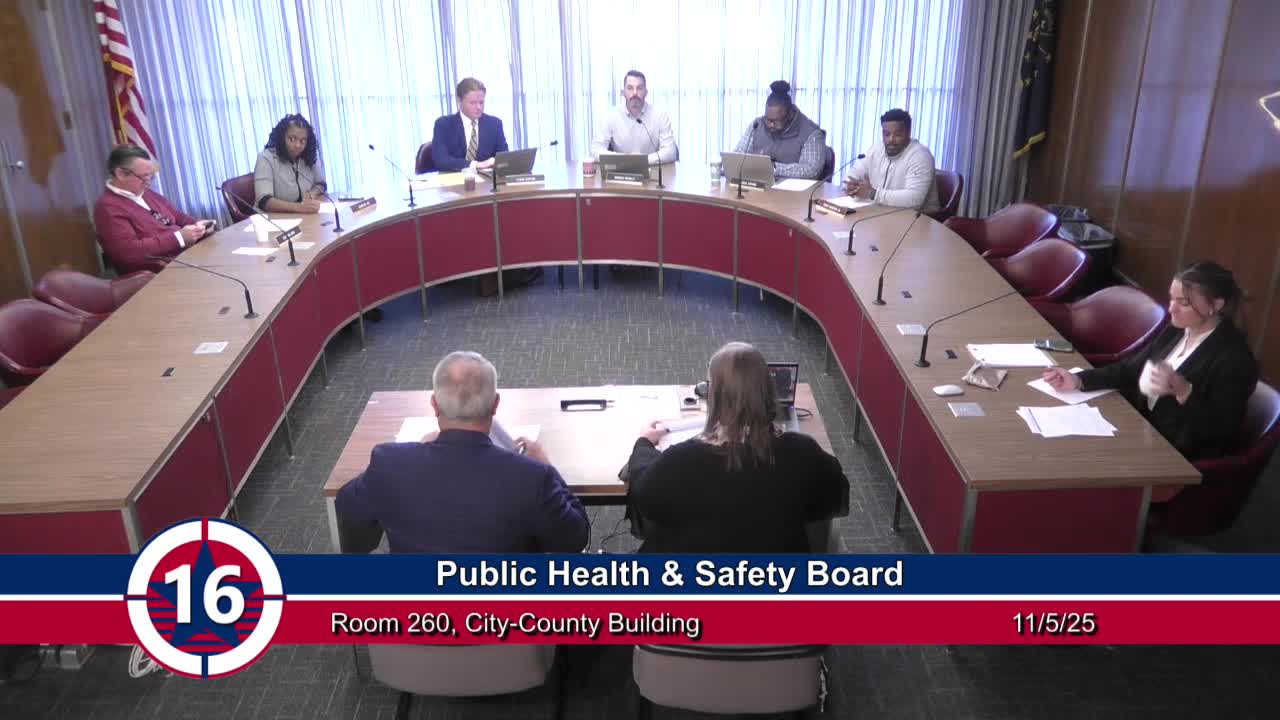Board approves two contracts for IMPD pension disability reviews
Get AI-powered insights, summaries, and transcripts
Subscribe
Summary
The Public Health and Safety Board approved two two-year contracts for Indianapolis Metropolitan Police pension disability reviews: Hendricks County Regional Hospital for physical-disability case reviews ($250/hr; NTE $28,000) and Hope Haven for psychological evaluations (pricing tiers; NTE $28,000). Staff said they expect about 5–6 cases/year.
The Public Health and Safety Board on Nov. 5 approved two contracts to provide medical and psychological reviews of Indianapolis Metropolitan Police disability-pension applicants.
Director Andrew Merkley opened the agenda item and called on Deborah Hall, who said IMPD selected Hendricks County Memorial/Regional Hospital to review physical-disability pension cases. "They will review the cases, do their own evaluation, and then make a recommendation to the board," Hall said, adding the rate will be $250 per hour and the two-year agreement carries a not-to-exceed amount of $28,000.
Hall said the city purchasing division ran a request-for-qualifications process and the pension board evaluated submissions; one vendor withdrew during that process. Board members asked whether hiring an out-of-county regional hospital was typical and about capacity; Hall said it is common because most work is paper review and a regional system brings specialist physicians and operational support.
Hall also described a parallel two-year agreement with Hope Haven Psychological Resource to handle mental-health disability claims. The contract memo lists fee tiers for psychological services, including a $175-per-hour testimonial rate, $100-per-hour prep, $175-per-hour chart review, an $875 flat-rate clinical interview/mental-status exam, a $2,100 psychological evaluation and a combined package at $2,975; the contract NTE is $28,000. Hall said staff expect roughly five to six psychological cases per year and estimated an average board cost of about $1,200 per applicant in most cases.
A board member thanked the prior physician who provided services pro bono and asked whether the new vendors had capacity; Hall said both firms can handle the projected caseload. The board voted to adopt both contracts; the transcript records the motion as passed without a roll-call tally.
What happens next: Both contracts are in place for two years and will be administered through city purchasing and the pension board. The board’s memo and staff answers say anticipated caseloads are modest (about 5–6 cases annually), and staff will monitor spending against the NTE.
